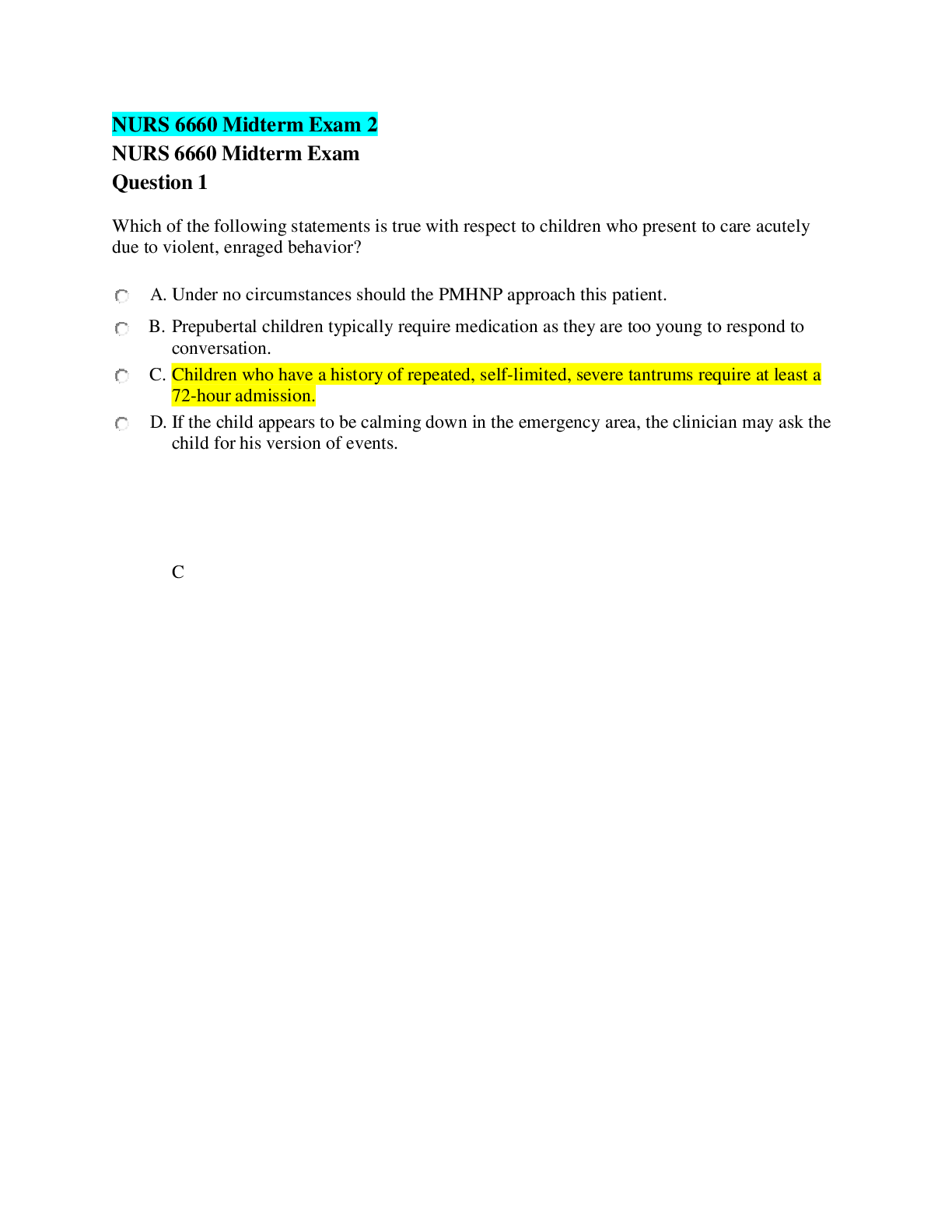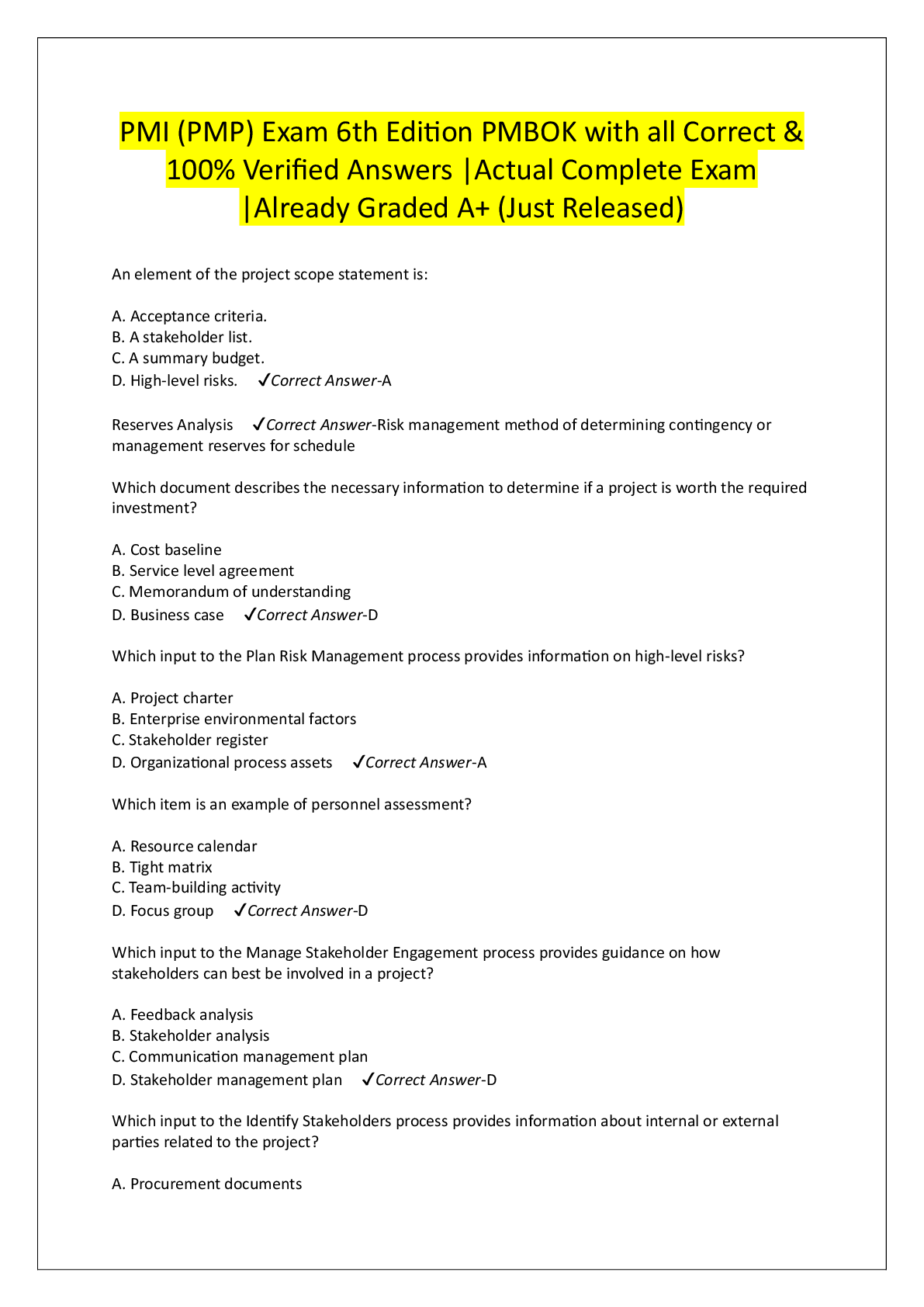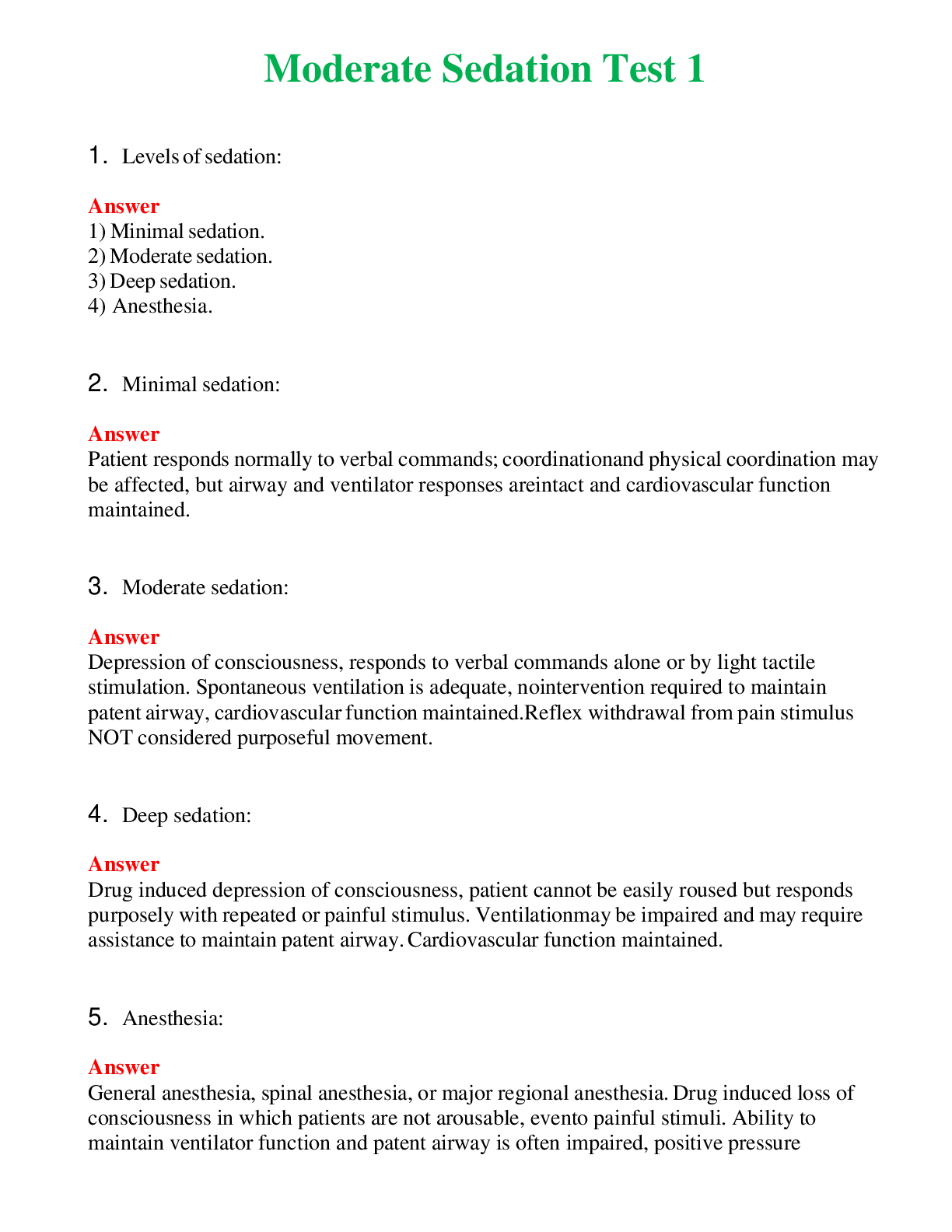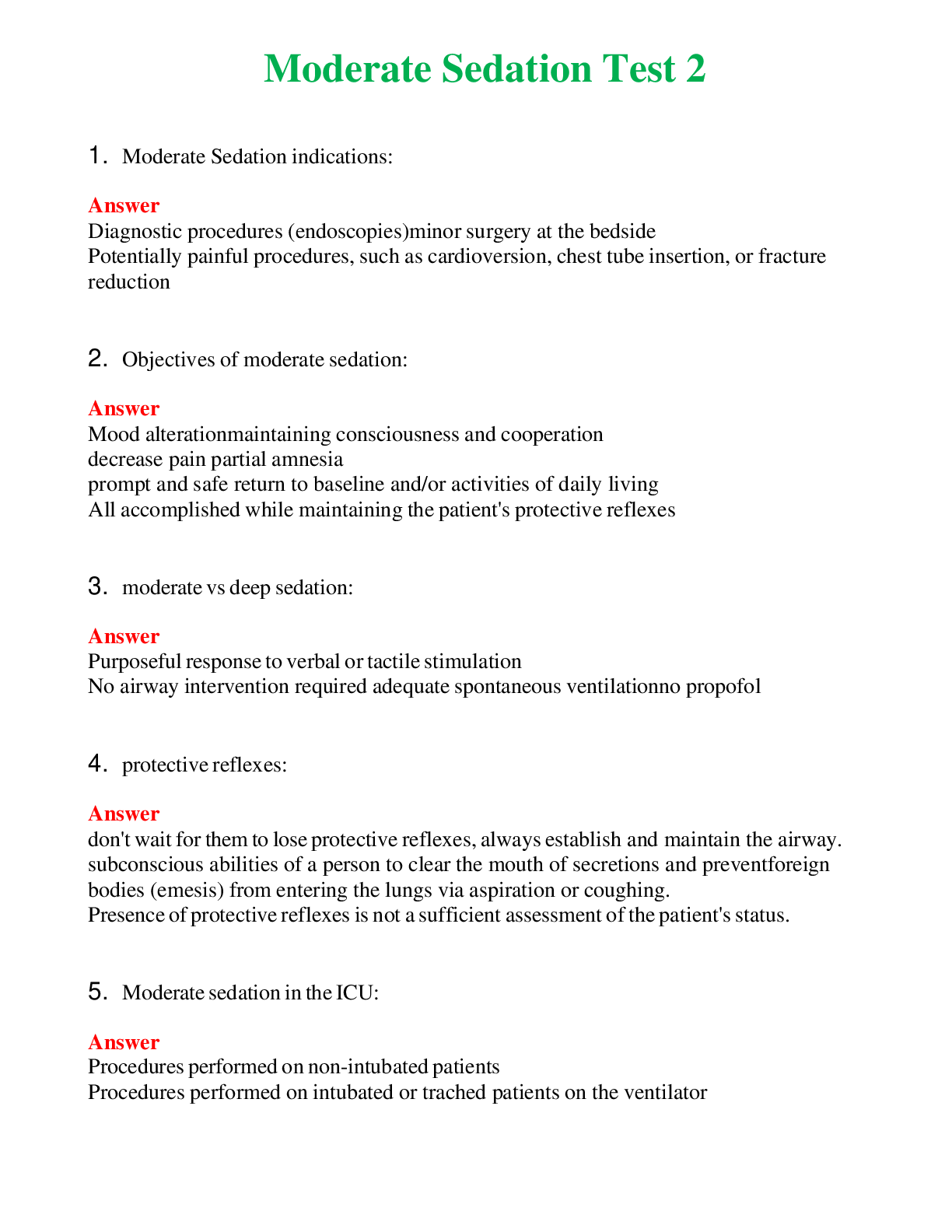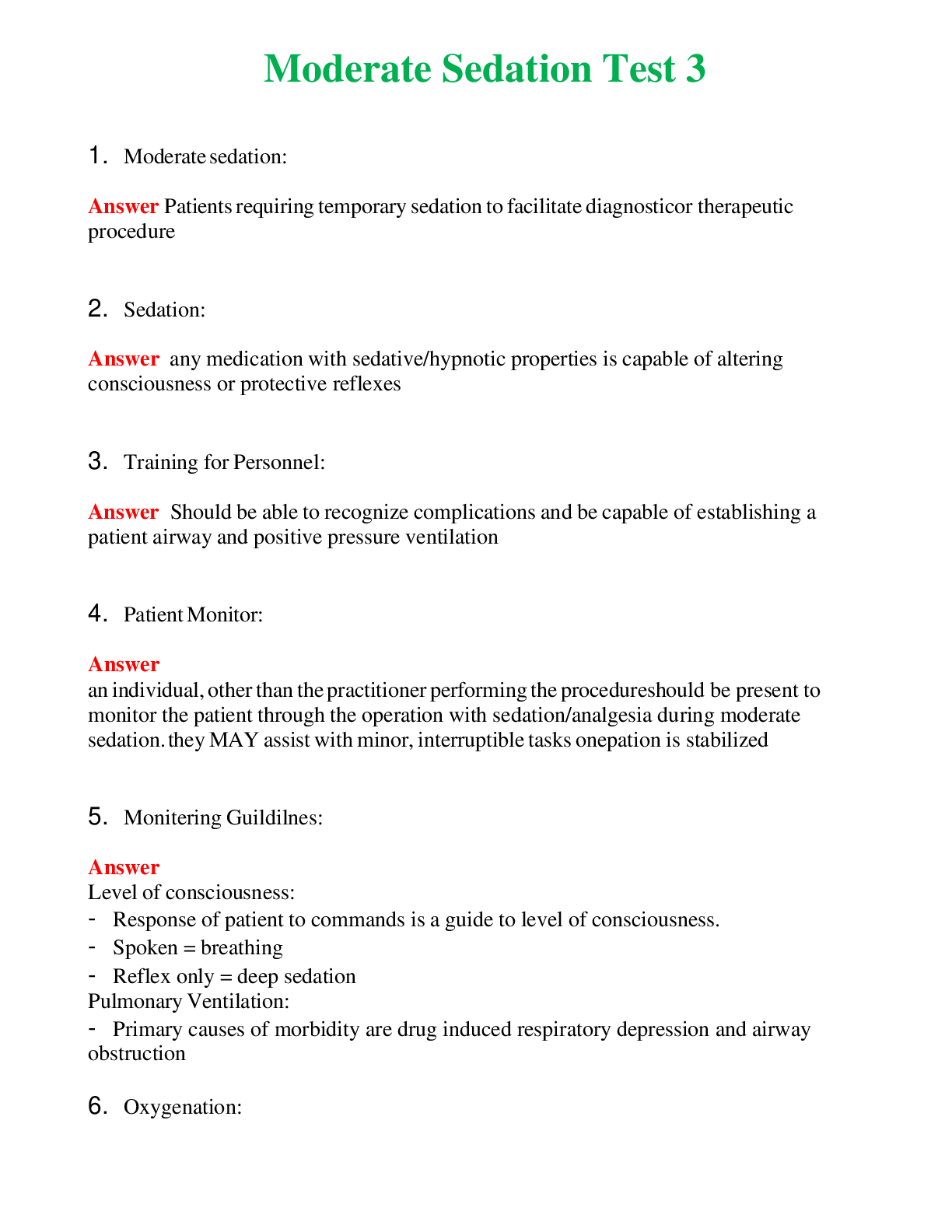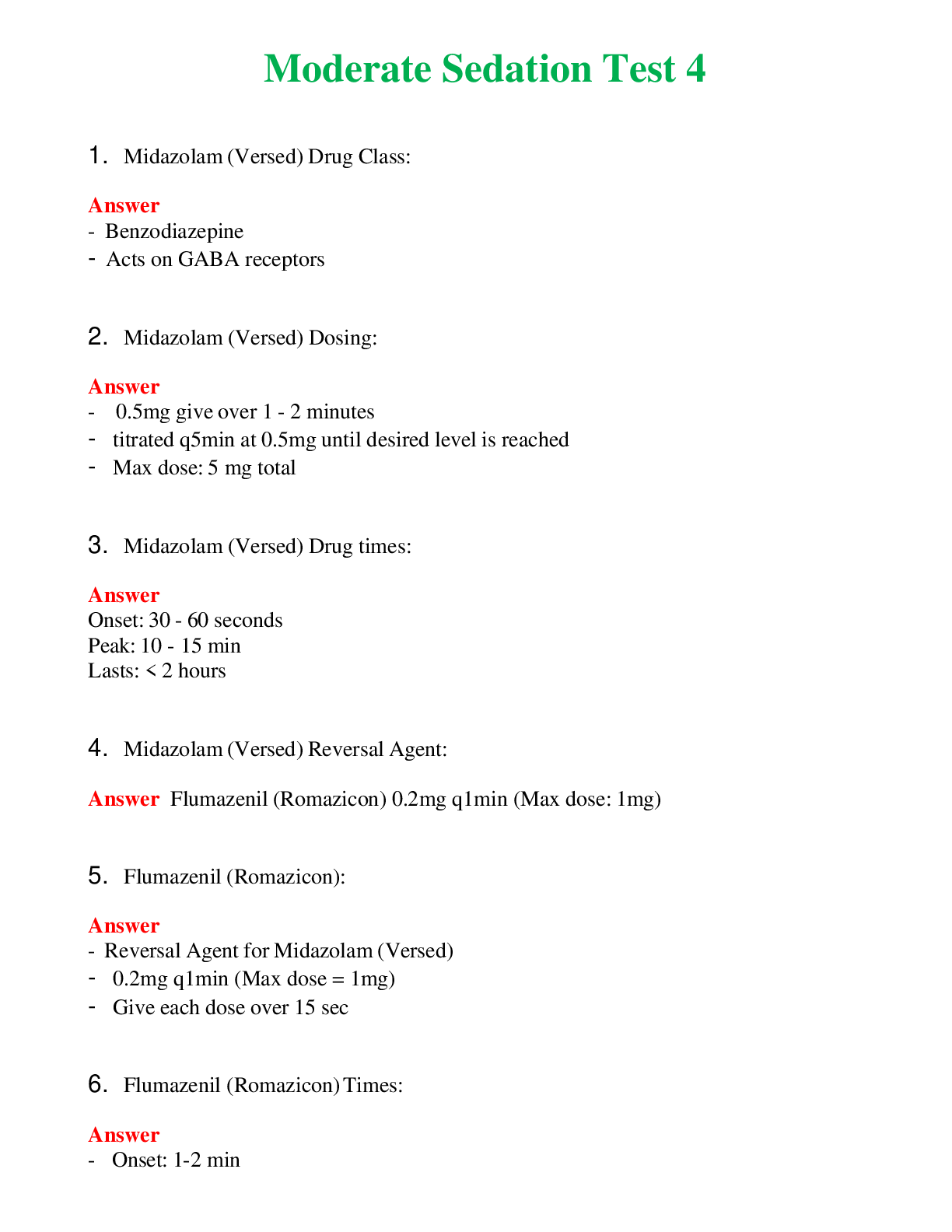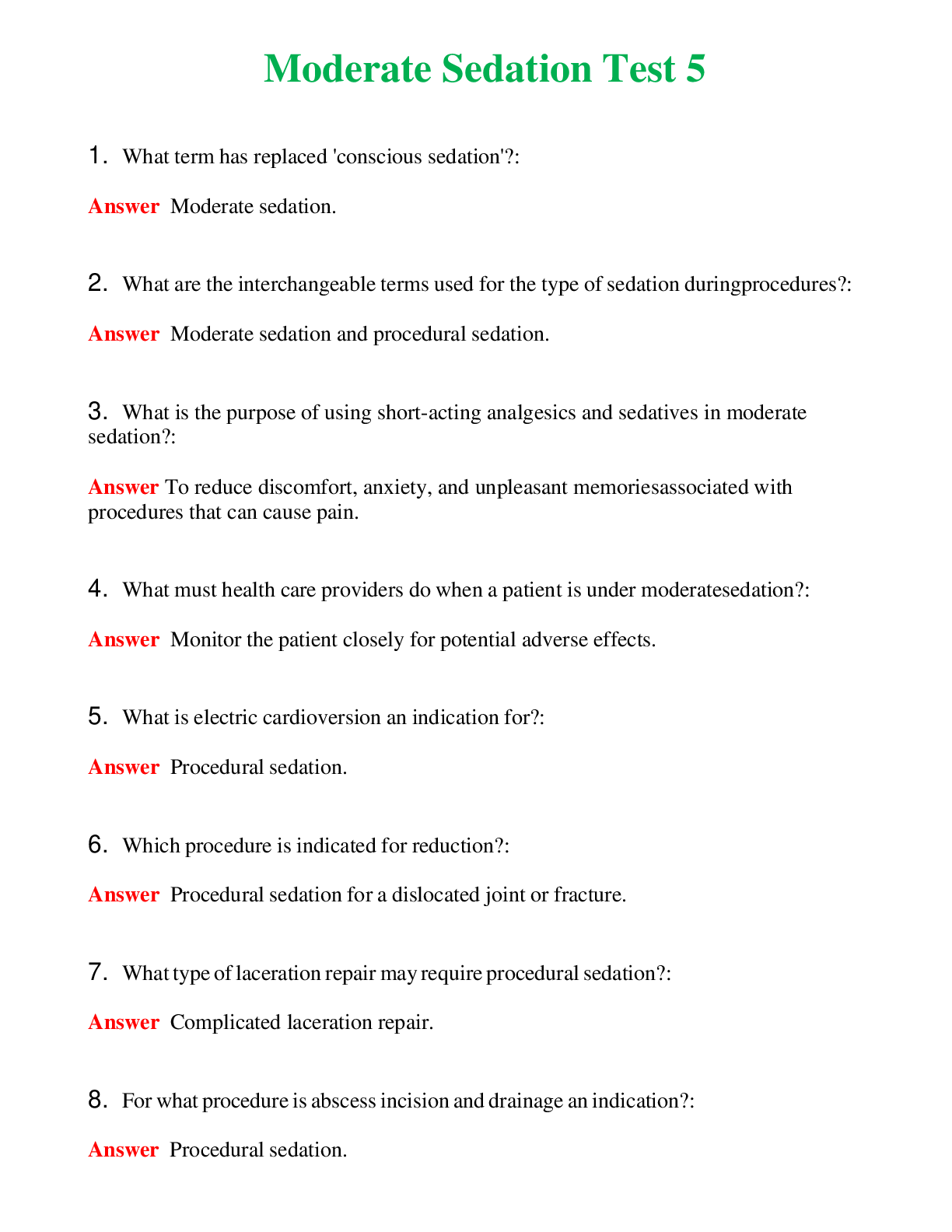GOVT 325 LEGAL ETHICS Test 1 | New Graded Solution, Liberty University.
Document Content and Description Below
GOVT 325 LEGAL ETHICS Test 1 Question 1 20 out of 25 points According to Rule 2.3 (B) reads, “When the lawyer knows or reasonably should know that the evaluation is likely to affect the client' ... s interests materially and adversely, the lawyer shall not provide the evaluation unless the client gives informed consent.” According to the comments give an example of when a matter will “likely affects the client’s interest materially and adversely”? Also, explain what is meant by “informed consent” and how can lawyer assure that any consent obtained from the client would be considered informed consent. In the answer include the biblical principles that supports protecting the client’s interest and not taking action that would adversely affect the client’s interest. Question 2 25 out of 25 points Chapter 2 addresses the rules that govern the lawyer’s conduct when acting as a counselor. List two rules from Chapter 1 that should also be taken into consideration by the lawyer when acting as a counselor and explain why these two rules are important and how they would apply as the lawyer counsels the clients. Include in the answer, the biblical principles that support the application of the two rules from Chapter 1 when the lawyer is acting as a counselor. Question 3 25 out of 25 points According to Rule 2.1, when “representing a client, a lawyer shall exercise independent professional judgment and render candid advice.” Define candid advice and explain, based upon the rule and comments, the principles a lawyer may or must consider when providing advice to the client and explain why it is important that the lawyer consider utilize these principles. Include in the answer, at least two verses that would support the obligation of the lawyer to provide candid advice to the client. Question 4 20 out of 25 points With regard to Rule 2.4 and the comments for Rule 2.4, give examples of when a lawyer serves as a third party neutral and explain why it is important that the lawyer remain impartial and avoid the appearance of bias or impartiality. In the answer, include the biblical principles that would coincide with the moral obligations of a person serving as a third party neutral in a contested matter. [Show More]
Last updated: 1 year ago
Preview 1 out of 4 pages

Buy this document to get the full access instantly
Instant Download Access after purchase
Buy NowInstant download
We Accept:

Reviews( 0 )
$9.00
Can't find what you want? Try our AI powered Search
Document information
Connected school, study & course
About the document
Uploaded On
Jan 27, 2020
Number of pages
4
Written in
All
Additional information
This document has been written for:
Uploaded
Jan 27, 2020
Downloads
0
Views
197



